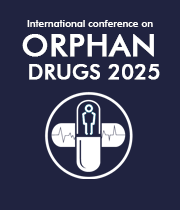Translational Science
Translational research aims to provide more relevant, usable outcomes that enhance human health directly. The purpose of translational research is to more rapidly and efficiently convert (move) basic science discoveries into practise. Translational science is a branch of research dedicated to deciphering the scientific and operational concepts that underpin each step of the translational process. Rare diseases are a driving force behind medical and pharmacological innovation and improvement. The majority of rare diseases are genetic disorders or atypical manifestations of infectious, immunologic, or oncologic diseases; they all allow researchers to explore the extremes of human pathology and gain insight into normal and abnormal physiology. Drug development has recently shifted its attention to predominantly genetic classification of diseases, allowing for the identification of molecularly defined targets and the creation of targeted therapeutics. Translational research has the potential to transfer promising research into practical new medicines for people suffering from rare diseases.
- Diagnosis
- Clinical Trial Design
- Need for Translational Research

Sergey Suchkov
The Russian University of Medicine & Russian Academy of Natural Sciences, Russian Federation
Vladlen Slepak
University of Miami, United States
Harsha Rajasimha
Jeeva Clinical Trials, Inc, United States
Vladlen Slepak
University of Miami, United States
Harsha Rajasimha
Jeeva Clinical Trials, Inc, United States
Sergey Suchkov
The Russian University of Medicine & Russian Academy of Natural Sciences, Russian Federation


Title : Emerging solutions for inclusive orphan drug clinical trials management
Harsha Rajasimha, Jeeva Clinical Trials, Inc, United States
Title : Ectopically expressed olfactory receptors as an untapped family of drug targets. Discovery of agonists and antagonists of OR51E1, an understudied G protein-coupled receptor
Vladlen Slepak, University of Miami, United States
Title : Personalized and Precision Medicine (PPM) as a unique healthcare model to secure the human healthcare and biosafety among childhood
Sergey Suchkov, The Russian University of Medicine & Russian Academy of Natural Sciences, Russian Federation
Title : Orphan and rare disease emerging as a global public health priority through the view of personalized and precision medicine: How to use the latter to revolutionize pediatric services
Sergey Suchkov, The Russian University of Medicine & Russian Academy of Natural Sciences, Russian Federation
Title : Personalized and Precision Medicine (PPM) though the view of reproductive healthcare, pediatric services and natural family planning: an option for clinicians and caregivers realize the potential of genomics-informed care to secure the individualized human biosafety
Sergey Suchkov, The Russian University of Medicine & Russian Academy of Natural Sciences, Russian Federation
Title : Democratizing ASO drug discovery at La Jolla Labs
Melissa Keenan, La Jolla Labs, United States